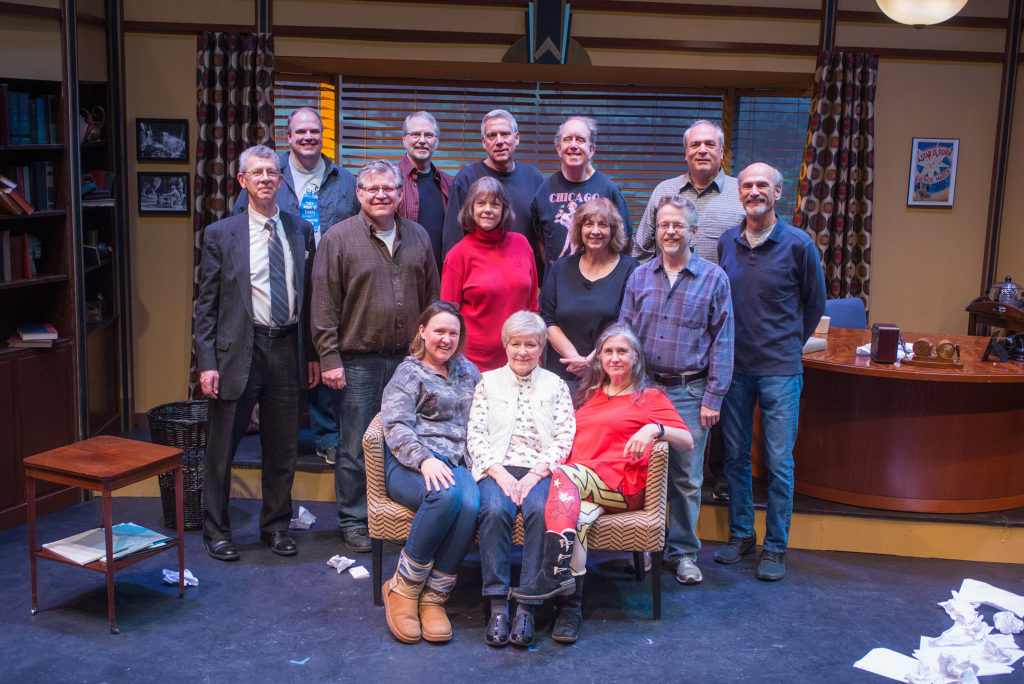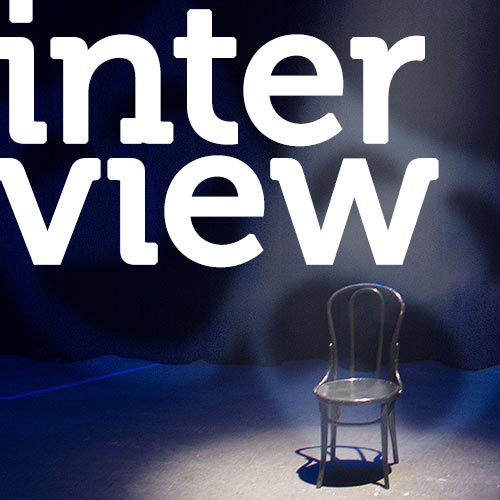Doug Long is a new director at Wheaton Drama, but far from new to directing. With theatre credits including work at Steppenwolf and
Bailiwick, and teaching credits at DePaul, College of DuPage, and St. Francis University, directing Moonlight and Magnolias is hardly a stretch. In fact, you might say he’s been preparing for this his whole life.

We sat down for “5 Questions” with Mr. Long to give you an insight into this remarkable new talent joining Wheaton Drama.
1. Every actor, director, tech person in theatre has a story on how they became involved – what was your journey?
I’ve been doing theatre since I was a kid, acting in school and community theatre plays. I convinced my 5th grade teacher to let me direct a story of the Pony Express from our textbook that was written in dramatic form. We got to use the stage in the gym, lights and all, and my mom helped me make props. For a few Fourths of July, my brothers and I wrote little musicals which we staged for an audience of our parents. I was active in drama throughout high school and later double majored in theatre and journalism at Ball State University. College is where I decided to focus on directing and where I directed my first full-length play, Tennessee Williams’ Suddenly Last Summer. After graduation, I was a newspaper reporter for a year, but gave it up to go to grad school at Indiana University, where I earned an MA in theatre history & research and an MFA in Directing (my thesis show was Tennessee Williams’ Summer and Smoke). I worked full-time in the IU theatre department, where I taught acting and oral interpretation, and also directed and acted at the Bloomington Playwrights Project. My family and I moved to Chicago in 1996 so I could work professionally as a director. My first gigs here were assistant directing at Steppenwolf (Slaughterhouse-Five) and directing an original one-act (Buzz) at the Bailiwick Directors Festival.
2. Moonlight and Magnolias is a comedy about a film (Gone with the Wind). You’ve got an encyclopedic knowledge of film and comedy, how did that come to be?
This started when I was quite young. My parents had some movie books, particularly the first edition (1957) of Richard Griffith & Arthur Mayer’s The Movies, which my brother and I devoured. We watched as many old movies as we could on TV and from the library on a library projector my dad would operate. I reviewed movies for my college newspaper and for a few years, I was the film writer for The (Bloomington, IN) Herald-Times. Over the decades, film has been my chief research area. I’ve created classes at DePaul University that focus on the world of film, like the films of Alfred Hitchcock, Chicago in film, movie musicals, and the films of 1939. I love most genres, but I have a special fondness for American comedies from film’s early Golden Era (1930s-40s), including Dinner at Eight, produced by David O. Selznick, screwball comedies such as Frank Capra’s It Happened One Night, Preston Sturges’ The Lady Eve, and of course the Marx Brothers, particularly their masterpiece Duck Soup. Comedies of that era drew on the physical mastery from the silent comics like Chaplin, Keaton, etc., and the snappy dialogue of vaudeville and radio.
3. In addition to being a director, you’re an educator. How does teaching fuel you?
I love inspiring people to investigate their creativity and share themselves through it. I’ve taught acting at many places – Indiana University, Victory Gardens Theatre, the College of DuPage, and the University of St. Francis. For students on the professional track, it’s a matter of honing and merging technical and imaginative skills and telling the truth on stage. For those not looking to act professionally, it could be the time in their life when they have permission to explore parts of themselves they don’t usually share with the world. Studying theatre develops a person’s confidence, imagination, and teamwork.
4. You’re a busy professional. With so much to juggle, what drew you to Moonlight and Magnolias?
For years, I’ve been on the lookout for a Chicago-area theatre who needed a director for Moonlight and Magnolias, so I was glad to see Wheaton Drama’s notice. I’ve taught and studied Gone with the Wind for several years and have found it to be a cultural touchstone which continues to be re-evaluated, most recently in light of the white supremacy marches and racially-motivated violence. Playwright Ron Hutchinson uses comedy to wrestle with some of these contemporary issues, such as the portrayal of the slave Prissy and the resistance of the studio heads, who were mostly Jewish, to address the growing power of the Nazi party. Despite these serious themes, Moonlight and Magnolias is a comedy. If you explain to someone that it’s about how difficult it was to create the screenplay for Gone with the Wind, that sounds anything but funny. But in his 1954 memoir A Child of the Century, Ben Hecht humorously tells how bizarre it was, with the dominating Selznick and macho director Victor Fleming acting out all the parts for Hecht, who, unbelievably, had never read Margaret Mitchell’s famous book! This was the starting point for Ron Hutchinson’s script. At times the play is full farce, and by Act 2, it’s almost like a comedic Lord of the Flies, if you can imagine that.
5. People seem to consume more content than ever, and yet theatres struggle to compete. Why should people make live theatre make a priority in their hectic lives?
As we’ve become more connected to our phones and computers, our lives have become less dependent on live human interaction. Live theatre is an antidote for that. When a character on stage hears crushing news, the audience hears it at the same time, in the same space, and feels the character’s aching. When something funny happens, an audience laughs together, forming community that is unique to live performance. In Moonlight and Magnolias, our audience will witness a hysterical breakdown in decorum as three men push themselves to the limit to achieve the screenplay for what producer David O. Selznick envisions as the greatest movie of all time.
Moonlight and Magnolias runs Thursdays – Sundays until December 6th at Wheaton Drama. No show, Thanksgiving Day. Visit www.wheatondrama.com/moonlight-and-magnolias for more information.


